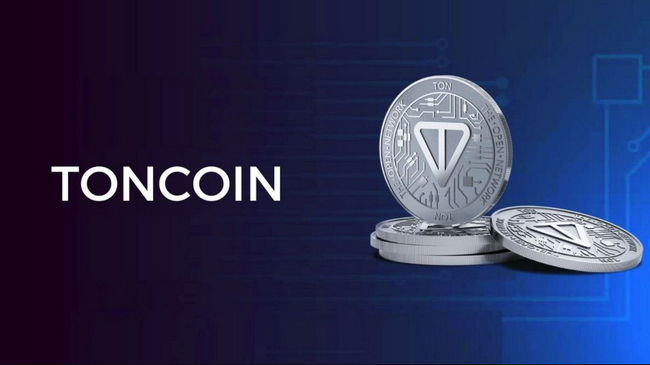-
 Bitcoin
Bitcoin $82,979.0091
-1.33% -
 Ethereum
Ethereum $1,792.6370
-1.62% -
 Tether USDt
Tether USDt $0.9996
-0.01% -
 XRP
XRP $2.1282
-0.58% -
 BNB
BNB $591.0772
-1.27% -
 Solana
Solana $119.1306
-3.53% -
 USDC
USDC $1.0000
0.00% -
 Dogecoin
Dogecoin $0.1677
-2.64% -
 Cardano
Cardano $0.6484
-2.38% -
 TRON
TRON $0.2374
-0.44% -
 UNUS SED LEO
UNUS SED LEO $9.0535
-5.03% -
 Chainlink
Chainlink $12.6507
-2.79% -
 Toncoin
Toncoin $3.2471
-4.64% -
 Stellar
Stellar $0.2503
-3.92% -
 Avalanche
Avalanche $17.7365
-2.96% -
 Shiba Inu
Shiba Inu $0.0...01227
-0.41% -
 Sui
Sui $2.1916
-3.91% -
 Hedera
Hedera $0.1610
-2.17% -
 Litecoin
Litecoin $82.0289
-3.07% -
 Polkadot
Polkadot $3.9288
-2.99% -
 MANTRA
MANTRA $6.2560
-0.24% -
 Bitcoin Cash
Bitcoin Cash $299.8527
-0.94% -
 Dai
Dai $1.0001
0.01% -
 Bitget Token
Bitget Token $4.4388
-2.11% -
 Ethena USDe
Ethena USDe $0.9991
0.00% -
 Pi
Pi $0.5815
10.93% -
 Hyperliquid
Hyperliquid $11.7918
-3.90% -
 Monero
Monero $212.2254
-2.50% -
 Uniswap
Uniswap $5.7927
-2.67% -
 OKB
OKB $51.8813
5.71%
What are TON coins? What can TON coins do? How to store TON coins?
TON coins are versatile cryptocurrencies fueling transactions, staking, governance, smart contract execution, and decentralized app access on the TON blockchain.
Oct 03, 2024 at 06:24 am

1. What are TON Coins?
TON coins (TON) are the native cryptocurrency of the TON blockchain, a decentralized, flexible, and scalable blockchain platform. TON coins serve as the fuel for all transactions and operations on the network, including sending and receiving payments, storing and retrieving data, and executing smart contracts.
2. What Can TON Coins Do?
TON coins play a crucial role in empowering the TON blockchain and enabling a wide range of applications and services:
- Transaction fees: TON coins are required as transaction fees for all operations within the TON network. This encourages efficient resource utilization and prevents network congestion.
- Staking: TON coins can be staked to earn rewards and support the network's security. By staking TON coins, node operators validate transactions and participate in the consensus mechanism.
- Governance: TON coins grant holders the right to participate in network governance. They can vote on proposals, decisions, and upgrades that shape the future of the TON ecosystem.
- Smart contract execution: Smart contracts on the TON blockchain require TON coins as their execution fee. This ensures that smart contract transactions are properly processed and executed based on the agreed-upon terms.
- Access to decentralized apps: TON coins facilitate access to decentralized applications (dApps) built on the TON blockchain. Users can interact with these dApps, participate in their services, and engage in their governance by using TON coins.
3. How to Store TON Coins
To securely store TON coins, users have the following options:
- Software wallets (custodial): Custodial wallets, such as Trust Wallet or Ledger Live, provide a convenient and secure way to store TON coins. The user's private keys are managed by the wallet service provider.
- Hardware wallets (non-custodial): Non-custodial hardware wallets, such as Trezor or Ledger Nano X, offer enhanced security by storing users' private keys offline. These devices are typically used for long-term storage and provide peace of mind.
- Web wallets (custodial): Custodial web wallets, such as TON Wallet or WalletIO, allow users to access and manage their TON coins via a web browser. This option requires trust in the wallet provider's security measures.
Disclaimer:info@kdj.com
The information provided is not trading advice. kdj.com does not assume any responsibility for any investments made based on the information provided in this article. Cryptocurrencies are highly volatile and it is highly recommended that you invest with caution after thorough research!
If you believe that the content used on this website infringes your copyright, please contact us immediately (info@kdj.com) and we will delete it promptly.
- MemWallet Simplifies Meme Coin Trading, Bridging the Gap Between Everyday Users and the Fast-Moving World of Meme Coins
- 2025-04-06 06:40:12
- Hut 8's (HUT) new subsidiary, American Bitcoin Corp., a partnership between the mining company and the Trump family, could be spun out
- 2025-04-06 06:40:12
- Coinbase Records Its Worst Quarter Since FTX Collapse, Posting a 30% Plunge
- 2025-04-06 06:36:22
- FanDuel Sportsbook Has Promos for the 2025 Men's College Basketball Tournament
- 2025-04-06 06:30:12
- Grayscale Investments Is Launching a New Exchange-Traded Fund (ETF)
- 2025-04-06 06:30:12
- Bitcoin (BTC) Volatility Has Risen, Price Fluctuating Within a Huge Range
- 2025-04-06 06:25:12
Related knowledge

What is Ethereum’s Slashing mechanism and how to punish malicious behavior?
Feb 20,2025 at 03:08am
Key PointsOverview of slashingDifferent types of slashing in EthereumIncentives and consequences of slashingIdentifying and reporting slashed validatorsOngoing discussions and potential improvementsEthereum's Slashing Mechanism: Punishing Malicious BehaviorEthereum's slashing mechanism is an essential tool for ensuring network security and punishing mal...

What is the verifier node of Ethereum and how to become a verifier?
Feb 19,2025 at 06:00pm
The Verifier Node of Ethereum: A Comprehensive GuideKey Points:What is a Verifier Node?How to Become a Verifier NodeResponsibilities and Rewards of a Verifier NodeMinimum Requirements for Becoming a Verifier NodePotential Difficulties in Running a Verifier Node1. What is a Verifier Node?A Verifier Node is an independent entity on the Ethereum network th...

What is Ethereum’s staking, and how to participate and earn money?
Feb 19,2025 at 04:37pm
Key Points:Understanding Ethereum's Staking MechanismSteps to Participate in StakingBenefits and Rewards of StakingSecurity and Risk ConsiderationsTechnical Requirements and Hardware OptionsPotential Challenges and Troubleshooting TipsFAQs on Ethereum StakingWhat is Ethereum's Staking?Proof-of-Stake (PoS) is a consensus mechanism used in blockchain netw...

What is Ethereum’s DAO (Decentralized Autonomous Organization) and how does it work?
Feb 20,2025 at 03:12am
Key PointsDefinition and Structure of a DAOGovernance and Decision-Making in DAOsBenefits and Use Cases of DAOsChallenges and Limitations of DAOsWhat is Ethereum's DAO (Decentralized Autonomous Organization) and How Does It Work?Definition and Structure of a DAOA Decentralized Autonomous Organization (DAO) is an innovative governance and management fram...

What is Ethereum's multi-signature wallet and how to improve security?
Feb 20,2025 at 02:18pm
Key Points:Understanding the Concept of a Multi-Signature WalletBenefits and Drawbacks of Multisig WalletsRequirements for Setting Up a Multisig WalletStep-by-Step Guide to Generating a Multisig WalletImplementing Strategies for Enhanced Security1. Understanding the Concept of a Multi-Signature WalletA multi-signature (multisig) wallet in the Ethereum e...

What is Ethereum's oracle and how to provide data for smart contracts?
Feb 21,2025 at 01:30am
Key Points:Understanding the concept of oracles in EthereumExploring different types of oraclesDetailed guide on how to provide data for smart contractsAddressing potential challenges and considerationsWhat is Ethereum's Oracle?Oracles are crucial components in the Ethereum ecosystem, enabling smart contracts to access real-world data and off-chain even...

What is Ethereum’s Slashing mechanism and how to punish malicious behavior?
Feb 20,2025 at 03:08am
Key PointsOverview of slashingDifferent types of slashing in EthereumIncentives and consequences of slashingIdentifying and reporting slashed validatorsOngoing discussions and potential improvementsEthereum's Slashing Mechanism: Punishing Malicious BehaviorEthereum's slashing mechanism is an essential tool for ensuring network security and punishing mal...

What is the verifier node of Ethereum and how to become a verifier?
Feb 19,2025 at 06:00pm
The Verifier Node of Ethereum: A Comprehensive GuideKey Points:What is a Verifier Node?How to Become a Verifier NodeResponsibilities and Rewards of a Verifier NodeMinimum Requirements for Becoming a Verifier NodePotential Difficulties in Running a Verifier Node1. What is a Verifier Node?A Verifier Node is an independent entity on the Ethereum network th...

What is Ethereum’s staking, and how to participate and earn money?
Feb 19,2025 at 04:37pm
Key Points:Understanding Ethereum's Staking MechanismSteps to Participate in StakingBenefits and Rewards of StakingSecurity and Risk ConsiderationsTechnical Requirements and Hardware OptionsPotential Challenges and Troubleshooting TipsFAQs on Ethereum StakingWhat is Ethereum's Staking?Proof-of-Stake (PoS) is a consensus mechanism used in blockchain netw...

What is Ethereum’s DAO (Decentralized Autonomous Organization) and how does it work?
Feb 20,2025 at 03:12am
Key PointsDefinition and Structure of a DAOGovernance and Decision-Making in DAOsBenefits and Use Cases of DAOsChallenges and Limitations of DAOsWhat is Ethereum's DAO (Decentralized Autonomous Organization) and How Does It Work?Definition and Structure of a DAOA Decentralized Autonomous Organization (DAO) is an innovative governance and management fram...

What is Ethereum's multi-signature wallet and how to improve security?
Feb 20,2025 at 02:18pm
Key Points:Understanding the Concept of a Multi-Signature WalletBenefits and Drawbacks of Multisig WalletsRequirements for Setting Up a Multisig WalletStep-by-Step Guide to Generating a Multisig WalletImplementing Strategies for Enhanced Security1. Understanding the Concept of a Multi-Signature WalletA multi-signature (multisig) wallet in the Ethereum e...

What is Ethereum's oracle and how to provide data for smart contracts?
Feb 21,2025 at 01:30am
Key Points:Understanding the concept of oracles in EthereumExploring different types of oraclesDetailed guide on how to provide data for smart contractsAddressing potential challenges and considerationsWhat is Ethereum's Oracle?Oracles are crucial components in the Ethereum ecosystem, enabling smart contracts to access real-world data and off-chain even...
See all articles





















































































